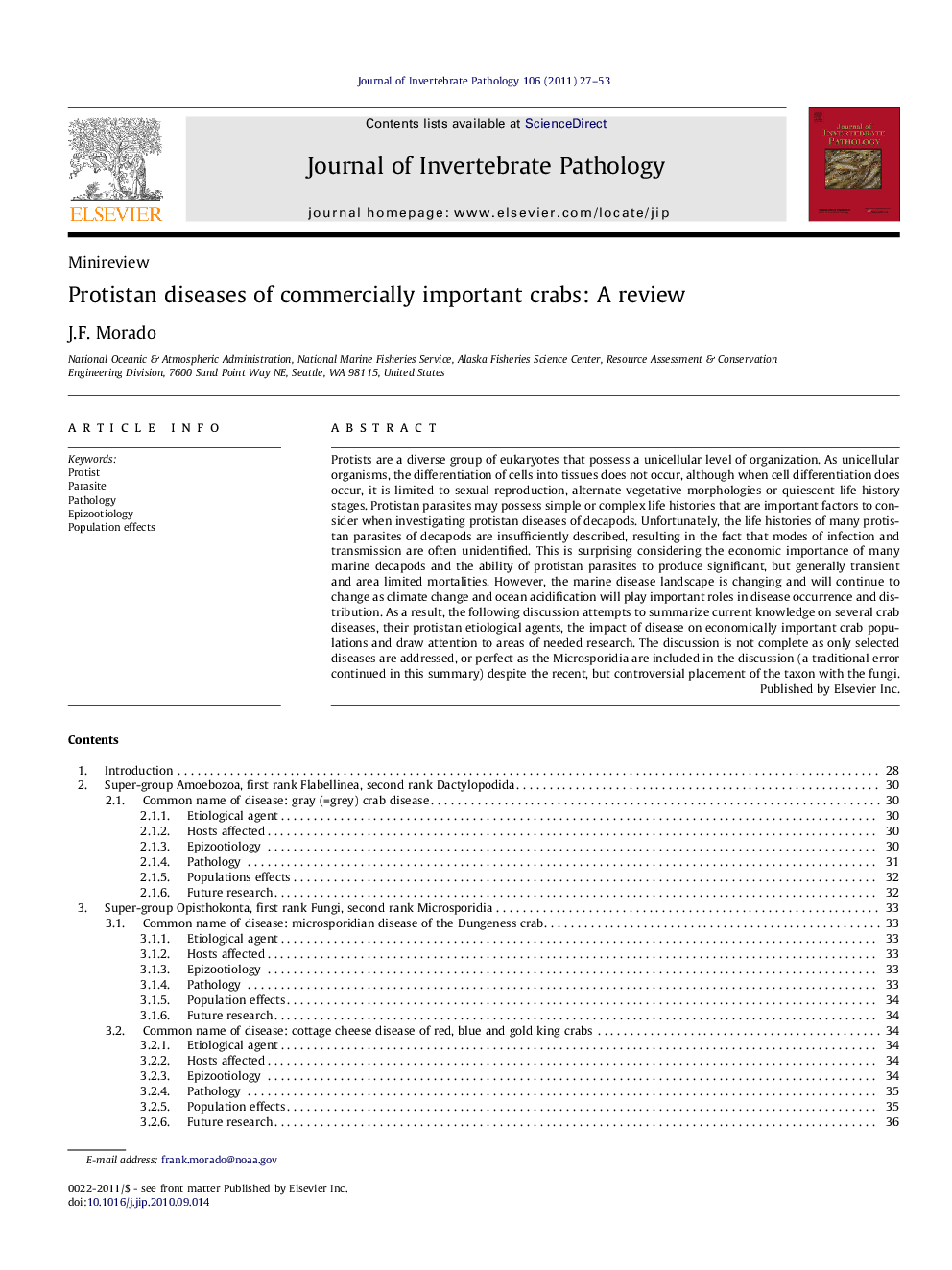| Article ID | Journal | Published Year | Pages | File Type |
|---|---|---|---|---|
| 4558049 | Journal of Invertebrate Pathology | 2011 | 27 Pages |
Protists are a diverse group of eukaryotes that possess a unicellular level of organization. As unicellular organisms, the differentiation of cells into tissues does not occur, although when cell differentiation does occur, it is limited to sexual reproduction, alternate vegetative morphologies or quiescent life history stages. Protistan parasites may possess simple or complex life histories that are important factors to consider when investigating protistan diseases of decapods. Unfortunately, the life histories of many protistan parasites of decapods are insufficiently described, resulting in the fact that modes of infection and transmission are often unidentified. This is surprising considering the economic importance of many marine decapods and the ability of protistan parasites to produce significant, but generally transient and area limited mortalities. However, the marine disease landscape is changing and will continue to change as climate change and ocean acidification will play important roles in disease occurrence and distribution. As a result, the following discussion attempts to summarize current knowledge on several crab diseases, their protistan etiological agents, the impact of disease on economically important crab populations and draw attention to areas of needed research. The discussion is not complete as only selected diseases are addressed, or perfect as the Microsporidia are included in the discussion (a traditional error continued in this summary) despite the recent, but controversial placement of the taxon with the fungi.
